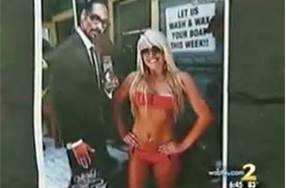 There are a number of interesting cases making their way through the justice system in several countries that involve threatening words written during internet conversations. It’s interesting for a number of legal reasons and it’s not as clear-cut as people would like to imagine.
There are a number of interesting cases making their way through the justice system in several countries that involve threatening words written during internet conversations. It’s interesting for a number of legal reasons and it’s not as clear-cut as people would like to imagine.
A person makes one crazy post in an internet chat room and now sits in prison awaiting trial and a possible sentence of ten years in jail. Another makes a series of threats on a memorial page for a slain teen, pleads guilty, and is sentenced to twenty-eight months in prison.
Most threats of this nature not only never amount to anything but they weren’t made with any intention of being carried out. Still, when you threaten to kill people the authorities have every right to come by and see if you have made any plans to carry out said attack.
Part of me feels bad for Justin Carter and Reece Elliot but another part of me thinks that their incarceration is not without merit. When you threaten to kill a classroom full of children, when you post disgusting and threatening remarks on a memorial page for “a laugh” then maybe you shouldn’t be surprised to hear a knock at the door. The police take their difficult job seriously and well they should.
As the A.C.L.U lawyer mentions in the first article that I linked, we don’t joke around about bombs in airports anymore. We know it can get us, should get us, a conversation with a large man in a small room. Insane people are out there planning such attacks and if you joke around about making one yourself, well, don’t come crying to me that is was all in fun, a joke, sarcasm.
I do think prosecutors should be able to separate real threats from people just saying incredibly stupid things. That people who say violent, angry things but have no weapons, no plans to actually carry out their threats, have taken no actions towards carrying out threats, should be treated more kindly.
In the United States you cannot be arrested for saying you hate President Obama. You wish he wasn’t president. Political speech is protected by the First Amendment to the Constitution, and rightly so. When the government can arrest you for saying you don’t like a politician, that you dislike, say, the Evil Chicago Cubs, then we have lost our freedom. However, if you threaten to kill the president, expect a visit from the Secret Service. If you have purchased weapons and bought a plane ticket to Washington D.C., well, you get what you very well should get. A stint in the big house.
I’ve said it over and over on this blog. Words have meaning. Words hurt. You trolls out there; keep that in mind. There is a line and it can be crossed. When it is crossed you won’t get much sympathy, not even from Libertarians like me. Prison is not the place you want to end up because you wanted a few lulz.
Tom Liberman
Sword and Sorcery fantasy with a Libertarian Twist
Current Release: The Sword of Water ($2.99 for 300+ pages of action packed excitement and moral lessons galore)
Next Release: The Spear of the Hunt


 There are two stories in the headlines today that bring to mind an incredibly difficult dilemma that men and women of conscience must sometimes face. I will examine this question in great detail in my next novel, The Spear of the Hunt. Where is the line one crosses between being a patriot and being a traitor? At first glance the two seem diametrically opposed to one another but in these stories they are clearly linked.
There are two stories in the headlines today that bring to mind an incredibly difficult dilemma that men and women of conscience must sometimes face. I will examine this question in great detail in my next novel, The Spear of the Hunt. Where is the line one crosses between being a patriot and being a traitor? At first glance the two seem diametrically opposed to one another but in these stories they are clearly linked. There’s an
There’s an  There is a
There is a  The National Transportation Safety Board
The National Transportation Safety Board  An
An 










